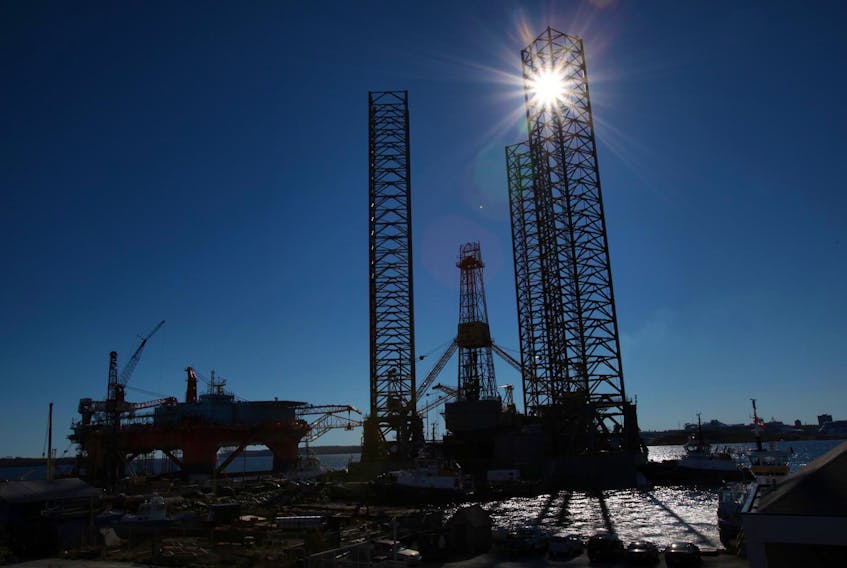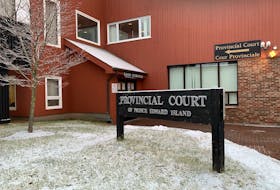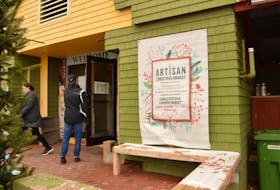Members of the fishing industry and environmental groups say they feel ignored after a Senate committee struck down proposed amendments to legislation that would have limited the power of offshore petroleum boards in environmental assessments.
The amendments to Bill C-69, also known as the Impact Assessment Act and the Canadian Energy Regulator Act, were proposed by Nova Scotia Liberal Senator Jane Cordy at the Senate environment committee on Thursday but were defeated 6-5.
If passed, they would have made a stipulation in the bill prohibiting members of the Canada-Nova Scotia Offshore Petroleum Board (CNSOPB) and the Canada-Newfoundland and Labrador Offshore Petroleum Board (CNLOPB) from being appointed chair of federal panels tasked with the impact assessment of offshore oil and gas projects.
Speaking with SaltWire on Friday, Cordy said during Senate committee hearings held in the Atlantic region and across Canada last month, Senators heard from many stakeholders, including Indigenous and environmental groups, the fishing industry, as well as academics who urged Senators to propose amendments that would see petroleum boards given less power in the legislation.
“I think when you look at industry chairing an impact assessment, the possibility for bias is there and if, in fact, the bias doesn't happen certainly the perception of bias is there,” Cordy said.
Bill C-69 proposes sweeping changes to how the government assesses and approves major projects such as oil and gas extraction and will give the Ottawa greater control over the assessment process.
The bill also changes the roles of the so-called life cycle regulators, which include the Canadian Energy Regulator (previously the National Energy Board), Canadian Nuclear Safety Commission as well as the CNSOPB and CNLOPB.
“I think when you look at industry chairing an impact assessment the possibility for bias is there.”
- Nova Scotia Senator Jane Cordy
Under current assessment laws, the two offshore petroleum boards simply provide advice to the Impact Assessment Agency of Canada, the main body responsible for all federal assessments.
Under the new proposed laws, the boards would have direct input — two out of five members on the impact assessment panels would come from offshore petroleum boards and the chair of these panels can also come from them.
Critics argue that the offshore boards are comprised of former oil and gas executives — effectively advocates for industry — and should only be involved in a regulatory role, not in project assessment, while the CNSOPB itself says their job is to ensure regulatory compliance, not to promote industry.
Experience or bias?

“Some Senators are only listening to, I think, one voice, and that's the fossil fuel industry. That's pretty shocking given where we're at in terms of having to deal with the climate crisis.”
- Gretchen Fitzgerald, program director with the Sierra Club Canada
During committee debate surrounding Cordy’s amendments, Nova Scotia Conservative Senator and committee deputy chair Michael MacDonald, who voted against the amendments, said many of the concerns raised around this section of C-69 during Senate hearings were from the same “circle of people” and that Senators really didn’t hear the other side of the story.
Colin Sproule, vice-president of the Bay of Fundy Inshore Fishermen's Association said he strongly disagrees with MacDonald’s assessment.
“For the first time in history we saw representatives from the conservation community, the processing sector of the fishery and the harvesting sector come together in consort working towards the same goal,” Sproule said. “We've been at loggerheads for decades over ocean policy and fisheries policy and I think the fact that we all found common ground on this is really indicative of how important this situation is.”
Gretchen Fitzgerald, national program director with the Sierra Club Canada said the fact that so many different groups shared similar concerns about the role of the offshore petroleum boards should be even more of a reason for lawmakers to listen, not a reason to discount their arguments.
“Some Senators are only listening to, I think, one voice, and that's the fossil fuel industry. That's pretty shocking given where we're at in terms of having to deal with the climate crisis,” Fitzgerald said.
MacDonald said he doesn’t see any reason why someone serving on an offshore board that has experience in the industry should be excluded from the impact assessment process.
“I think a much better amendment would have been to have some permanent representation from the fishing committee (on impact assessment panels),” he said.
Senators will have another chance to introduce amendments at Bill C-69’s third reading in the Red Chamber before sending the amended bill back to the House of Commons.
Cordy said she will reintroduce her amendment at that time.
Sean Fraser, Central Nova MP and parliamentary secretary to Environment Minister Catherine McKenna said with approximately 200 proposed amendments to the bill it’s impossible to weigh in on which ones will be supported by government until there's been time to consider the ones that actually go back to the House.
“Regardless of what a person's position is on the (offshore boards), the general sense I get from my constituents is they want us to develop our resources but in a responsible way,” he said.
@notandrea
RELATED:









